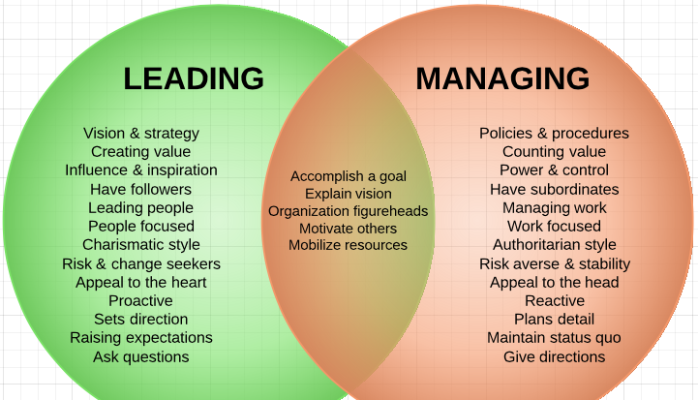The Top 5 Leadership Skills You Need to Have

Leadership means different things to different people since it exists in some form or another in every aspect of life. Leadership exists in the workplace, the political arena, in religion, in social setting and even at home. As such, individuals develop leadership skills constantly throughout their life and like anything else, leadership skills continue to improve with practise.
“If your actions inspire others to dream more, learn more, do more and become more, You Are A Leader.” – John Quincy Adams
When we consider leadership in the workplace we know that being identified as a “leader or potential leader” in any organisation is a key indicator that you are highly valued as an employee. But are all leadership skills seen as equal or are some more valuable to employers than others? The truth is that some are regarded as more important.
The 5 Most Important Leadership Skills Are:
Inspire and Motivate others
As the quote above says, leadership requires that you motivate and inspire those around you. Inspiring and motivating others to act is what will bring your vision to life. This can be brought to life during an interview by explaining that you:
Make your team feel invested in the accomplishments of the company
Highlighting any bonus system your company operates
Talk about share allocations and the ways you reward and recognise your teams efforts
Explain that leadership is also about giving your team a break when they are exhausted and morale is low
Act with Integrity and Honesty
Strong leaders set an example for their team by conducting themselves with honesty and integrity in all aspects of their behaviour. It can be a bit hard to showcase this leadership quality during a job interview but you can:
Mention that you display the company’s values and core beliefs that both you and your brand represent in your office where they are highly visible to everyone.
You can talk about the promotion of honest ethical behaviour both formally via training programs and informally through everyday actions.
You can mention that a key part of your leadership is to promote a healthy interoffice environment, and encourage your team to live up to these standards.
Communicate Clearly
Having an intelligent vision and a strategic plan is wonderful but it isn’t going to do anyone any good if you cannot clearly explain your thoughts to those around you. Being able to clearly and succinctly describe what you want done is an extremely important leadership skill. If you can’t relate your vision to your team, you won’t all be working towards the same goal. You can show an employer you have strong communication skills by:
Mentioning things like an open door policy to your office
Making it a point to talk to your staff on a daily basis
Making yourself available to discuss interoffice issues
Initiating regular catch up sessions both formal and informal to share thoughts and progress
Analyze Issues & Solve Problems
Good leadership means you are capable of identifying and addressing problems in the workplace before that become major issues and obstacles. It is quite easy to demonstrate that you have this important leadership skill. You can use examples to bring the notion to life but the most important thing is to demonstrate that you go through a structured thought process.
Step 1 – You analyse the issue and identify the problem
Step 2 – You then clearly define the parameters of the problem
Step 3 – Generate a range of possible solutions, carefully analysing the different possible courses of action
Step 4 – Select the best solution for implementation
Emotionally Intelligent
Emotional Intelligence is the measure of an individual’s abilities to recognise and manage their emotions, and the emotions of other people, both individually and in groups. It is an extremely important leadership skill because people with a higher emotional intelligence find it easier to build and maintain relationships. They are also better at recognising things like stress within themselves and act to eliminate it rather than letting it get them down. You can show that you have a high degree of emotional intelligence by:
Referring to the way you develop meaningful relationships with others
Showing you are self aware enough to realise you have been stressed and angry at times but were then able to work through it
Using examples of self restraint and reflective thinking after an issue has been dealt with
Note – Many organisations have a specific list of leadership qualities they look for in their people. The 5 above are the most common leadership skills employers recognise. Others that may arise include the ability to delegate, building talent, building relationships and for some professions taking risks. By ensuring you display the most common leadership skills you will be able to incorporate any additional leadership skills the interviewer may bring up during the interview into your answers.



